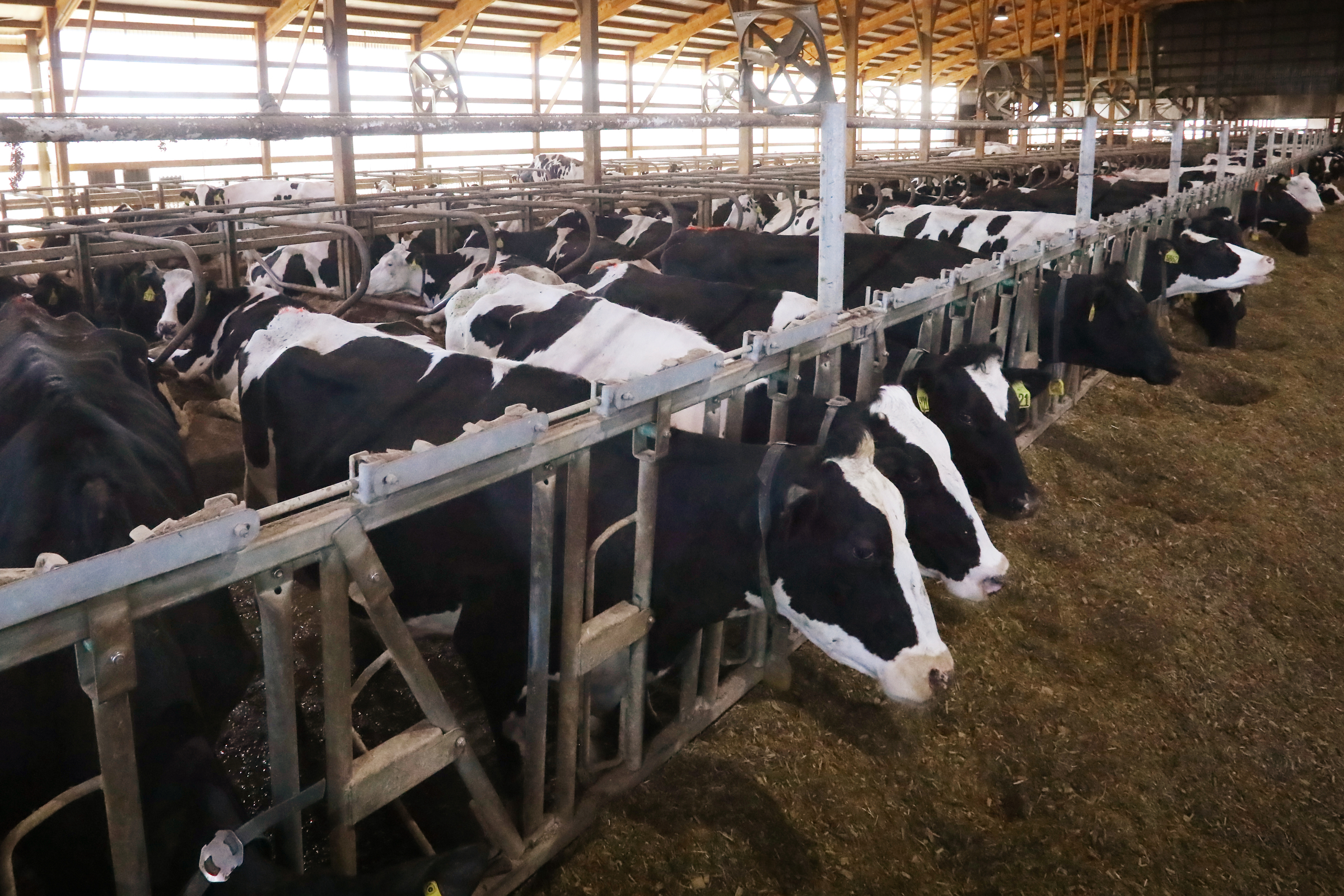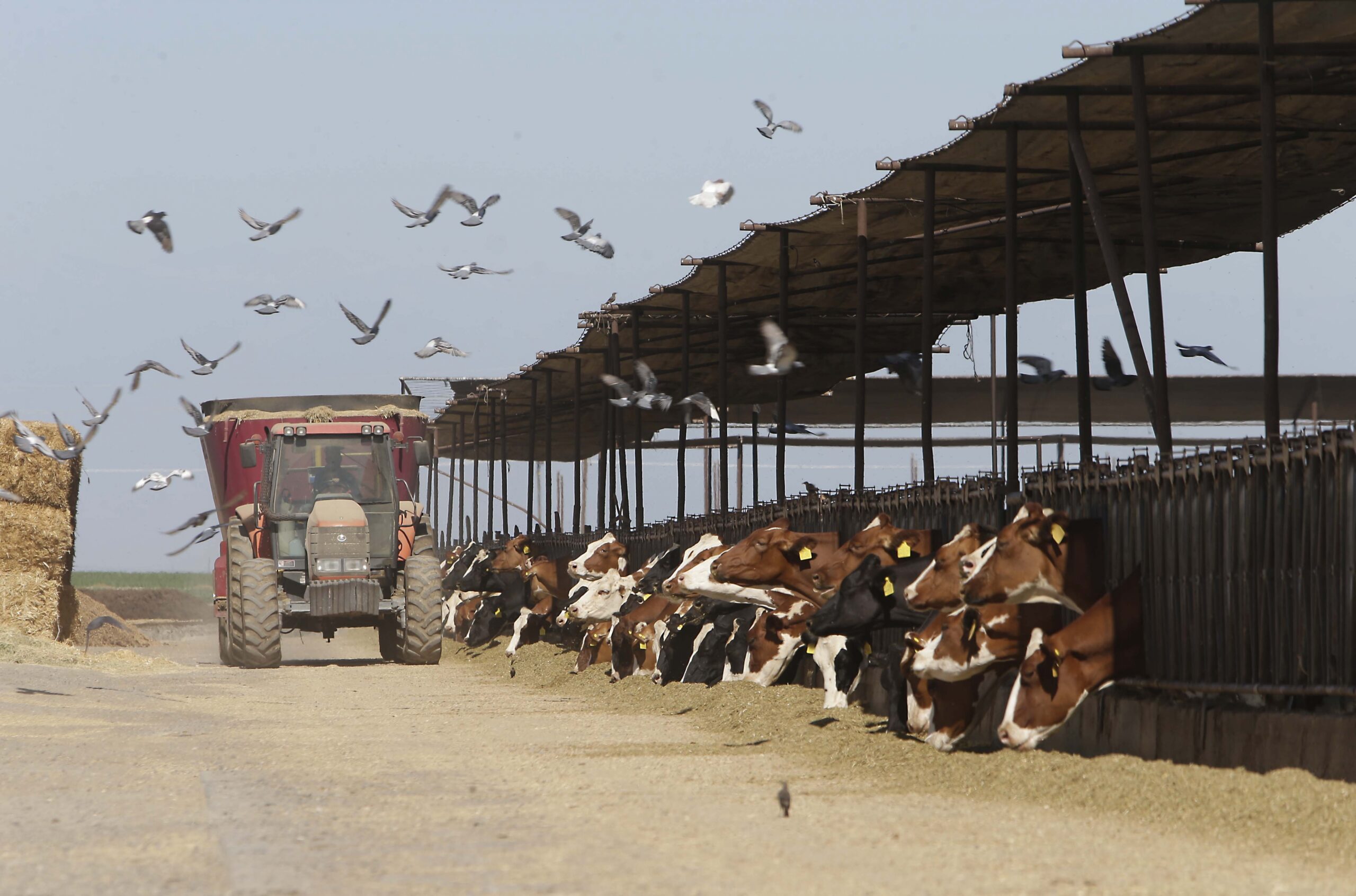The Wisconsin Department of Natural Resources will be revising state standards for manure spreading in geographic areas prone to water contamination.
Both agricultural and environmental groups said they support a scope statement for the revision approved by the state Natural Resources Board on Wednesday. But some conservation groups feel the scope of the changes is too narrow and doesn’t provide enough revision for concentrated animal feeding operations, or CAFOs.
“Unfortunately, I think the problem is much bigger and we still have a lot of work to do to revise the CAFO rules and regulations that apply statewide,” said Elizabeth Wheeler, senior staff attorney for Clean Wisconsin. “There are a lot of areas in the state that continue to be plagued with water quality issues and those will not be addressed by this rulemaking.”
Stay informed on the latest news
Sign up for WPR’s email newsletter.
A DNR representative told board members that officials had removed CAFO rule revisions from the scope statement in order to develop and approve changes more quickly.
Paul Zimmerman, executive director of governmental relations for the Wisconsin Farm Bureau Federation, agrees with removing the CAFO rule.
“Trying to do both at the same time was not going to be practical, and certainly protecting groundwater across the state was more important from my organization’s perspective than how we handle the permitting process for a couple hundred permitted livestock farms in the state,” Zimmerman said. “Not to say that the changes don’t need to be looked at in the future, but the priority needs to be in finding these sensitive areas and protecting ground water.”
Zimmerman and other ag industry experts said developing standards to protect water quality shouldn’t be about the size of the farm.
“It’s really about how all of us are doing, everybody in ag, and not just those of us who have livestock either,” said John Holevoet, director of government affairs for the Dairy Business Association.
Wheeler said she agrees all farms need to do their part, but some can have a greater impact on the environment than others.
“When you have a facility with a 100 cows, it just doesn’t have the same volume of manure that needs to be handled and managed properly as a facility with 5,000 or 10,000 cows,” Wheeler said. “It’s on a different scale.”
Holevoet said the DNR and other stakeholders also need more time to develop standards that won’t put financial stress on producers.
“Every time we have a rule revision, we’re going to end up with more expense on the farm,” Holevoet said. “There’s going to be new things expected of us. In areas that have an issue, that makes sense. If there’s something else we need to do to make sure that we can mitigate that problem, we’ll do it, but we’re also in … tough economic times.”
For now, environmental groups are “cautiously optimistic” the DNR will return to CAFO regulations after implementing the newly approved scope statement.
“If our elected officials and the DNR itself continue to push for those changes, I think we’d be more hopeful,” said Tressie Kamp, staff attorney for the Midwest Environmental Advocates. “Hopeful, but with a very clear understanding that there’s more that needs to be done to speed this timeline up.”
Wisconsin Public Radio, © Copyright 2024, Board of Regents of the University of Wisconsin System and Wisconsin Educational Communications Board.





